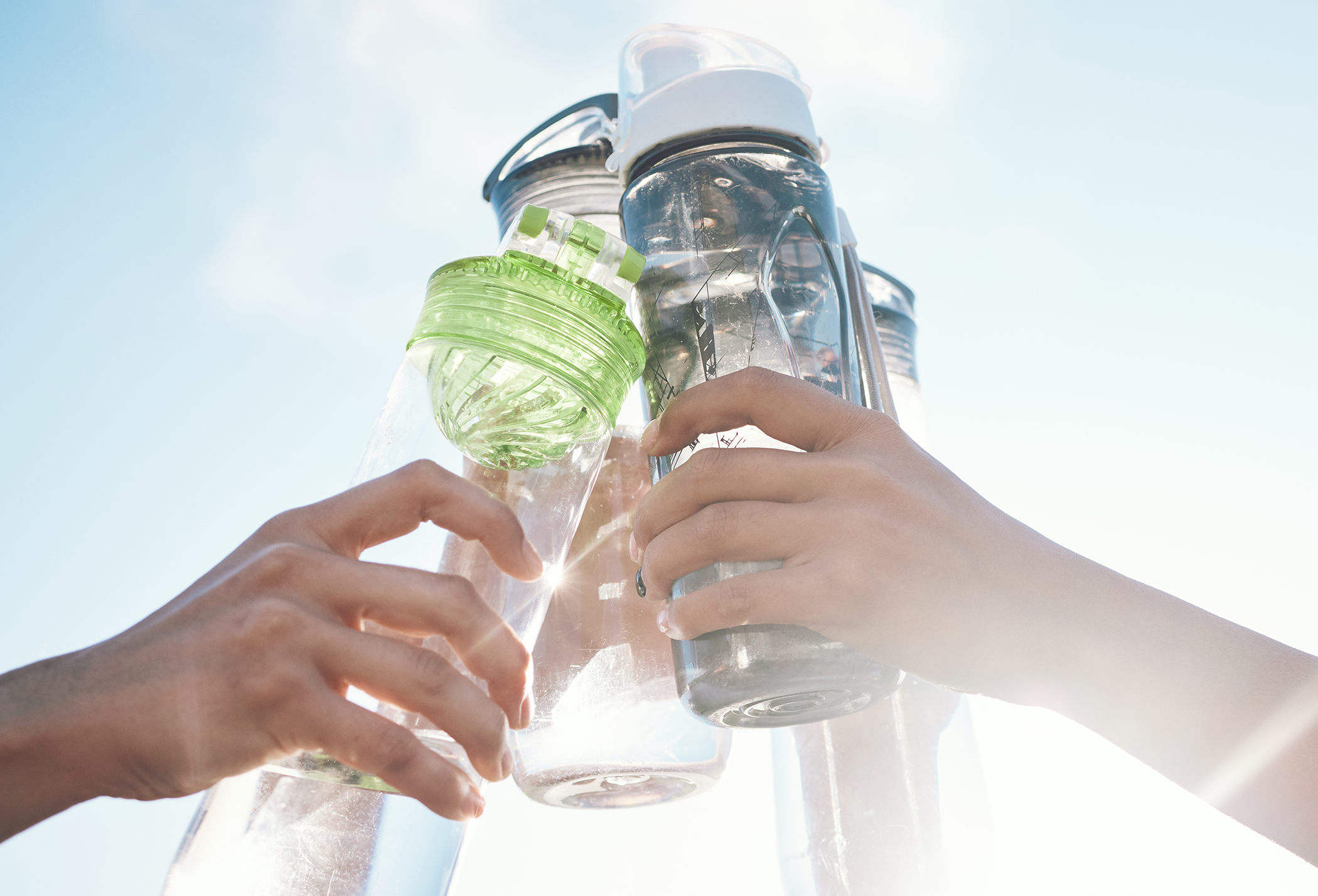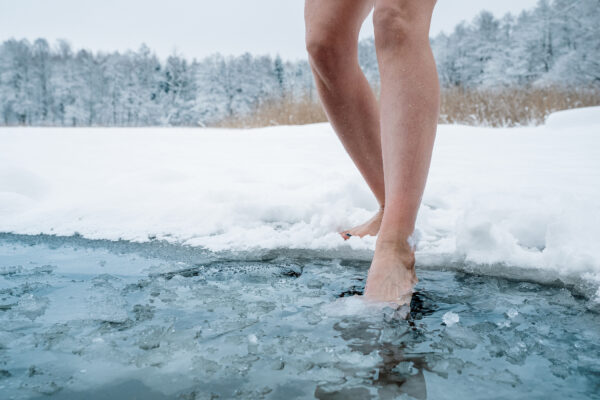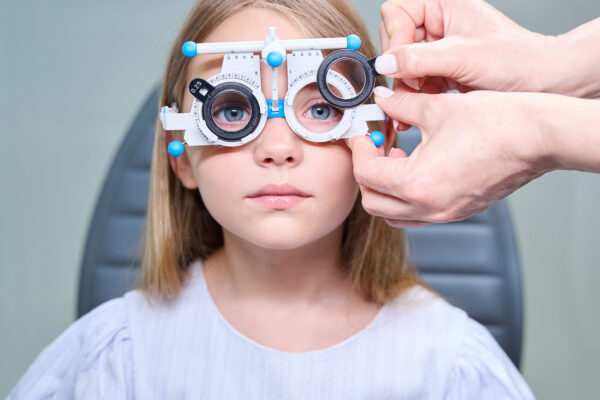Key Tips for Staying Hydrated Before, During, and After Exercise
By Jamie Bussin and Dr. Stacy Irvine DC
By the time you notice that you’re thirsty when you’re exercising, you’re likely already dehydrated. When I used to run (I can’t any more because of a partially torn Achilles tendon) I would marvel at those who could keep pace under the heat of the midday summer sun. My cut off was 24 degrees C. Above that I would lose water too quickly.
But whether you’re inside or outside, whatever the season, the risk of dehydration while exercising or playing sports is significant. So it’s important to make sure you’re taking the right steps to stay safe and hydrate properly. I discussed this with exercise and rehab specialist Dr. Stacy Irvine DC on Episode #139 of The Tonic Talk Show/Podcast. This is a digest of that conversation.
When is the Best Time to Hydrate? Our bodies lose moisture through our breath and sweat as we sleep. During sleep which averages 7-8 hours for most we’re not taking in any fluid. Dr. Irvine says, “My goal is always, first thing in the morning, try to get hydrated.”
Pre-exercise Hydration: If you’re exercising, you should drink approximately 500 milliliters of water about 2 hours before your workout. The reason for that is it allows you to urinate excess fluid in advance of your activity. And then, right before you go out to exercise, you should drink between 125 to 250 milliliters of water, depending on how big you are and how much you sweat.
Mid-exercise Hydration: Of course it’s important to stay hydrated during your workout. It is recommended to drink 125 milliliters of water every 10 to 20 minutes, depending on how hot it is. Remember that your thirst mechanism is not an accurate reflection of when you need to drink water.
The Impacts of Dehydration: There are many negative effects on your body if you are exercising while dehydrated. Primarily, your performance will be lacking. Your muscles won’t contract as well as in normal conditions. You won’t have your usual strength. Your cortisol levels will elevate which will bring your testosterone level down. This is particularly important for weightlifting and resistance training, when you want to have a higher level of testosterone to get those effects from your weight workout.
Post-Exercise Hydration: Properly hydrating post-workout directly correlates to your body’s recovery. To get a sense of how much water you lose during exercise, Dr. Irvine recommends weighing yourself immediately before and after your activity. She cautions not to replace all of the fluids in the first hour after exercise. Drink approximately 500 milliliters of water during that time and then be sure to replenish liquids throughout the day.
Whether you’re hydrating with cold or room temperature water doesn’t matter. It is a personal preference. I’m a cold water guy, because it helps to lower my body temperature both during and after exercise. Dr. Irvine agrees that water can help to regulate body temperature and avoid a heat stroke, particularly if you’re exercising outdoors in the heat. Proper hydration in that circumstance might include pouring some water over your head.
What Fluid Should You Drink? I drink water exclusively, before, during and after exercising. But that might not be the best option. A few years ago the milk marketing boards were touting chocolate milk for post exercise hydration and protein. Candidly, I think I might throw up if I drank milk after a workout.
Dr. Irvine stresses the importance of replacing your electrolytes after exercising. She doesn’t advocate for liquids that contain sugar and artificial dyes such as chocolate milk or store-bought sports drinks. She also recommends avoiding drinks that contain caffeine as they may increase heart rates at a time when the body needs rest. If you must have a sports drink look for one that doesn’t have added sugar or artificial dyes, but does have sodium and magnesium. Alternatively you can replace electrolytes with food. That might be a handful of salted nuts or an energy bar that contains protein.
Can you drink too much water? The short answer is yes. It is possible to over hydrate – by taking in too much water and not enough electrolytes. The condition is called hyponatremic encephalopathy, a swelling of the brain, and in extreme cases you might die.
The bottom line? To avoid dehydration, be sure to properly hydrate before, during and after you exercise.




